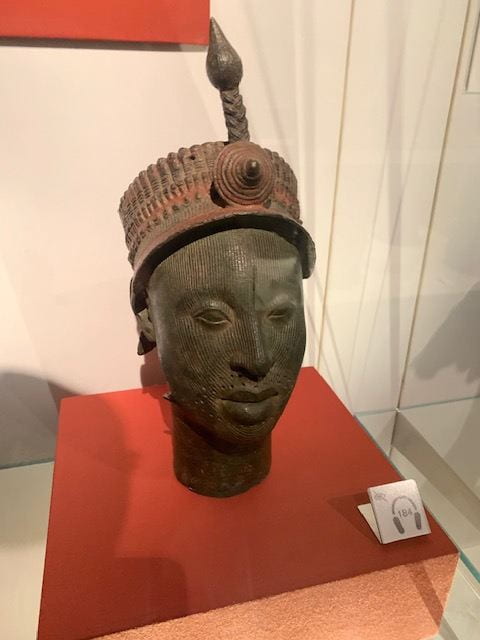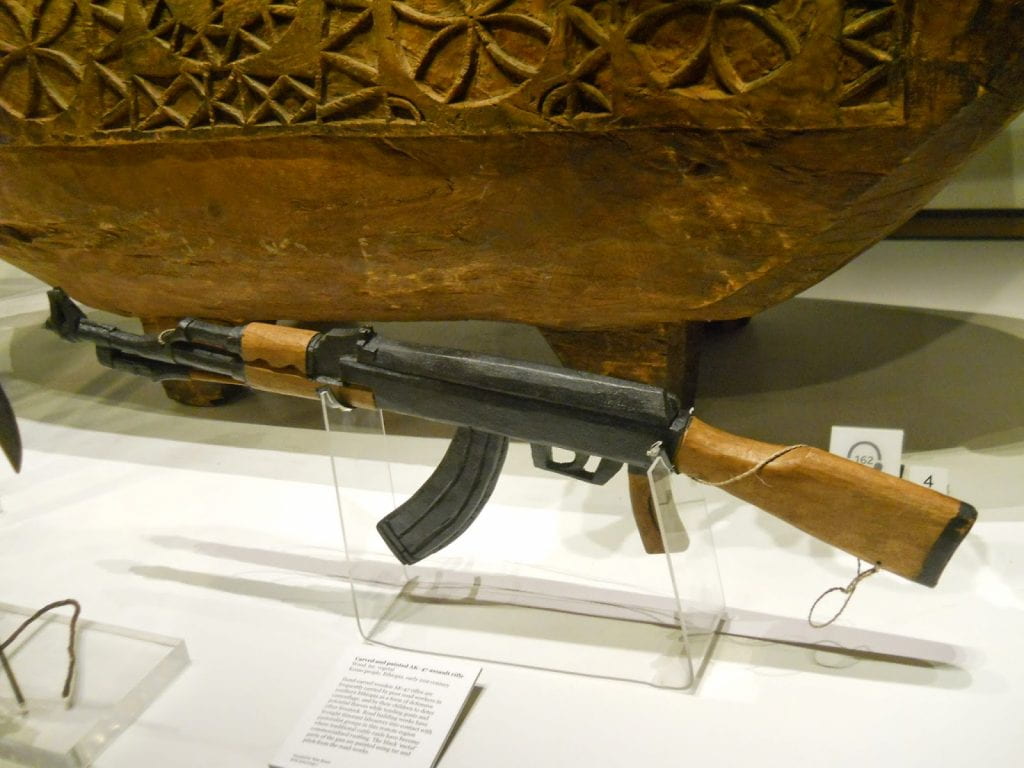The Damage Done: Colonialism in Africa

This weekend I had the opportunity to visit the British Museum again to look at artefacts regarding our work on British Colonialism in Africa. It was a unique opportunity to learn not only about that time period in African history, but also about Africa before colonialism. It did not take long to realize that Africa has perhaps one of the most under-appreciated histories and cultures, being filled with art and accomplishments most of the work either doesn’t know about or plays down. The statue above, for instance, is of a Nigerian king. The whole exhibit, however, was filled with elaborate carvings and ornate weaponry and clothes from all over Africa, from all different points in time before colonialism. I was aware of some African history, but it is one of the many symptoms of colonialism that African history and culture is not more often talked about, and if it is, it begins with colonialism.

Though Kenya is just one place in a vast continent, it serves as an example of how just a few decades of colonization can completely disfigure and transform a place with a long history. Caroline Elkins and Ngugi wa Thiong’o, through historical work and first hand accounts, describe the effects of colonialism and war on Kenya, and even though Kenya is today an independent country it is clear that it is still scarred by its past. Even in the years following the creation of an independent Kenya, the new Kenyatta government was loyal to the British crown and allowed for the exploitation of Kikuyu Mau Maus to the benefit of settlers and loyalists. Elkins notes that by 1962, Kenya’s population was smaller than expected, due to, as she suspects, deaths as well as a lack of fertility due to malnourishment and disease. And still the people who fought against British rule would still have to suffer it in a different form. The photograph to the right is not a real AK pattern rifle, but a wood carving made to look like one. African road workers and poor travelers make them as a deterrent against bandits, as stated on the plate below. To me, it is a striking symbol of the destitution war and colonization brings upon innocent people.
The world is only just starting to heal from its colonial past, and colonial powers have at least begun to recognize the effects of their actions. Only just. This exhibit was a reminder that while it is important to speak about the colonial past and make it transparent what happened, there is also a great deal of value in studying what came before. People often think of Africa as a place that had and still has nothing, but that simply has never been true.





